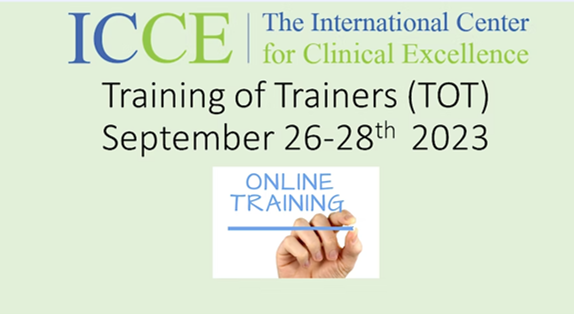Dr. Danilo Moggia is a psychologist and researcher working at the University of Trier in Germany. Over the last several years, he’s been devoted to studying how “machine learning” (ML) can be used to improve the fit and effect of mental health services.

Wikipedia defines ML as, “an area within artificial intelligence which uses data to ‘train’ computers to discover and ‘learn’ rules for solving a task.” According to Dr. Moggia, when it comes to the application of AI to psychotherapy, therapists fall into one of three groups. The first, and fewest in number, are enthusiastic. They love technology, see the possibilities in a self-driving car or future, therapist-less therapy. The second might best be characterized as reluctant. Still viewing AI and ML as more science fiction than science, they fall squarely in the “wait and see” camp. Third, and final, are the philosophically opposed, those who worry about the loss of the human element in psychotherapy.
So, cutting to the chase, can AI/ML help practitioners tailor care to their clients?
That is the question, Dr. Moggio and colleagues address in their chapter, “Do certain people respond better to specific forms of psychotherapy?” published in the 2023 edition of the APA Handbook of Psychotherapy. After reading it, I immediately emailed to see if he’d talk to me, live. The chapter is definately worth a read. We cover most of it and more in the interview below.
As always, interested in your thoughts and reactions!
Until next time,
Scott
Director, International Center for Clinical Excellence
P.S.: The ICCE “Train the Trainer” intensive is fast approaching. All online, this once-every-other-year event focuses on finding and refining your presentation and training skills. Click here for more information or to register.


IESO, LYSSN, and Amazon Healthscribe are very active in this space.
The practitioner sits with the client, and AI records the entire session and generates case notes and treatment considerations for the Practitioner to reflect on and implement if suitable.
CHAT GPT can be used as a supplementary psycho-educational resource in Practice.
This is exciting stuff, as long as we realize that AI is not, and will never be sentient.
The sentient part ofs our job 🙂
I now now what “camp” you belong to!
S
I love this interview! Thanks for posting it!
AI & machine learning have wonderful potential for helping our clients. Yet I may have missed something. Is the work referred to here an AI version of the great psychotherapy debate? Or will it eventually be able to more precisely quantify which components of the 87% of extratherapeutic factors account for change? If so, it has the potential to help therapists to help clients leverage these extratherapeutic components, so change can happen more readily in one individual client at one particular time.
Very interesting conversation.
It is obvious that our field of work will also change, it is always a challenge to leave old established ways.
I hope that authorities and decision-makers take note of Dr. Moggio’s research that RCT studies are not the only answer to how psychotherapy should be conducted.
Thanks Scott for always inviting interesting people to your pod.
//Bengt
You and I both hope … but I fear, the PIC (Psychotherapy Industrial Complex) will continue their love affair with the RCT comparing different treatment models until the current generation of researchers retires and dies out.
Wow, this is really exciting. How can I apply? 😉
Which reminds me of an update for My Outcomes that was announced a while ago. I remember vaguely that additional and more specific recommendations about the trajectory would be given, which sounds like better algorithms would be used. Is there any news on the update?
Yes, the SPI is currently being programmed into the three authorized systems. Based on 20 years of research and experience, the SPI will provide a dynamic, session by session numerical prediction of the likely success rate of the care being provided. Stay tuned!
This is a pretty muddled and weird conversation. We are excited about machines telling us what’s going to work best for an individual patient? I can think of multiple downsides to doing this, not the least of which is adopting a preconceived concept of the patient (and treatment model?) vs meeting them as a unique individual/meeting them where they are existentially.
This is dehumanizing and sad IMO. Anyone remember common factors theory? Therapy is far more of an art than a science and I fear for those clinicians (and their patients) who believe the opposite.
Thanks for commenting Jeremy. Strangely, I felt this conversation with Dr. Moggia was one of the clearest and most direct of any I’ve ever done. I do understand your concerns about dehumanizing the process of psychotherapy — it would seem you fall into group 3 of his classification scheme for reactions to AI in therapy!
Thank you for the reply. I fall in the category of believing that we can judiciously use evidence based treatments without “scientizing” therapy. This fascination with seeking better therapy outcomes through science is misguided. At best we are hitting diminishing returns, at worst we’ve come to view therapy like the stock market, needing to find new ways to objectively choose the “best method” and measure constant growth toward “clinical excellence” through science (reason) over and above valuing wisdom and emotional intelligence and actually *seeing* the patient as a subjective human being who transcends our categories and methods.
Again, common factors theory tells us that all of this so called science is a distant second in importance to the therapeutic relationship/alliance with regard to what facilitates change in therapy. You once wrote an excellent piece for the Psychotherapy Networker called “How Therapy Lost It’s Magick”. You might want to revisit that and notice the vast, rich world of emotions, mystery and irrationality that represents the essence of what makes psychotherapy so special. The last time I checked those things weren’t measurable.
https://www.psychotherapynetworker.org/article/how-psychotherapy-lost-its-magick
Thanks for this exchange. Yes, I did write that article! And am still investigating/exploring that realm and its application to improving outcome and engagement. Amazing just how many “hits” that article has had since first being published in 2017. But let me ask, am I wrong in assuming that you think I fall into the first camp (i.e., enthusiasts)?
Judging by your reactions during the interview it seemed you were over the moon regarding what AI/science has to offer clinicians in terms of “algorithmically” dialing in the correct treatment for an individual prior to ever meeting them.
Hmm. So interesting …
P.S. as far as camps go, I’m in the camp that views trends toward leveraging algorithms to improve therapy outcomes as another example of how therapist/researcher desperation and anxiety (not the patient’s!) can lead us to be too quick to embrace the emperor’s new clothes.
Your point of view and feelings have been crystal clear to me from your first post. Again, thanks for chiming in. All the best, Scott
Really enjoyed this conversation Scott! I think I’m in the wait and see camp. I think that the line between science and art might be more blurry than it seems at first glance. I think technology to help people get matched with the right therapists is a sensible way to apply AI, especially if it increases their chances of good outcomes (by relying on the factors that influence outcomes). I’m also open to the potential of technology like AI creating issues in time. I’m staying tuned!